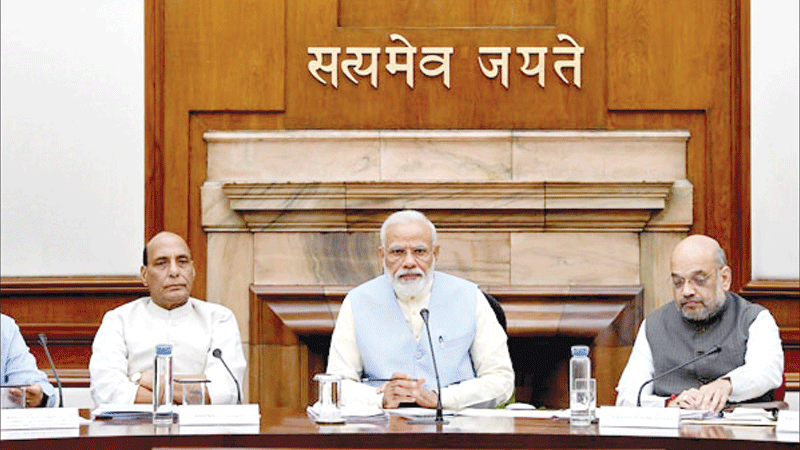India’s Updated Nationally Determined Contribution to be communicated to the United Nations Framework Convention on Climate Change
The Union Cabinet chaired by the Prime Minister Shri Narendra Modi on 3 August 2022 approved India’s updated Nationally Determined Contribution (NDC) to be communicated to the United Nations Framework Convention on Climate Change (UNFCCC).
The updated NDC seeks to enhance India’s contributions towards achievement of the strengthening of global response to the threat of climate change, as agreed under the Paris Agreement. Such action will also help India usher in low emissions growth pathways. It would protect the interests of the country and safeguard its future development needs based on the principles and provisions of the UNFCCC.
India at the 26th session of the Conference of the Parties (COP26) to the United Nations Framework Convention on Climate Change (UNFCCC) held in Glasgow, United Kingdom, expressed to intensify its climate action by presenting to the world five nectar elements (Panchamrit) of India’s climate action. This update to India’s existing NDC translates the ‘Panchamrit’ announced at COP 26 into enhanced climate targets. The update is also a step towards achieving India’s long term goal of reaching net-zero by 2070.
Earlier, India submitted its Intended Nationally Determined Contribution (NDC) to UNFCCC on October 2, 2015. The 2015 NDC comprised eight goals; three of these have quantitative targets upto 2030 namely, cumulative electric power installed capacity from non-fossil sources to reach 40%; reduce the emissions intensity of GDP by 33 to 35 percent compared to 2005 levels and creation of additional carbon sink of 2.5 to 3 billion tonnes of CO2 equivalent through additional forest and tree cover.
As per the updated NDC, India now stands committed to reduce Emissions Intensity of its GDP by 45 percent by 2030, from 2005 level and achieve about 50 percent cumulative electric power installed capacity from non-fossil fuel-based energy resources by 2030. Today’s approval, also takes forward the Hon’ble Prime Minister’s vision of sustainable lifestyles and climate justice to protect the poor and vulnerable from adverse impacts of climate change. The updated NDC reads “To put forward and further propagate a healthy and sustainable way of living based on traditions and values of conservation and moderation, including through a mass movement for ‘LIFE’– ‘Lifestyle for Environment’ as a key to combating climate change”. The decision on enhanced NDCs demonstrates India’s commitment at the highest level for decoupling of economic growth from greenhouse gas emissions.
Cabinet approves a project for saturation of 4G mobile services in uncovered villages at a total cost of Rs. 26,316 Cr
Digital inclusion and connectivity for all is an integral part of ‘antyodaya’ vision of the Government. Last year Government approved a project for providing 4G mobile services in 7,287 uncovered villages in 44 aspirational districts across 5 states.
In his Independence Day address in 2021, Prime Minister Shri Narendra Modi gave a call for saturation of government schemes. The Union Cabinet on 27 July approved a project for saturation of 4G mobile services in uncovered villages across the country at a total cost of Rs. 26,316 Cr.
The project will provide 4G mobile services in 24,680 uncovered villages in remote and difficult areas. The project has a provision to include 20% additional villages on account of rehabilitation, new-settlements, withdrawal of services by existing operators etc. In addition, 6,279 villages having only 2G/3G connectivity shall be upgraded to 4G.


